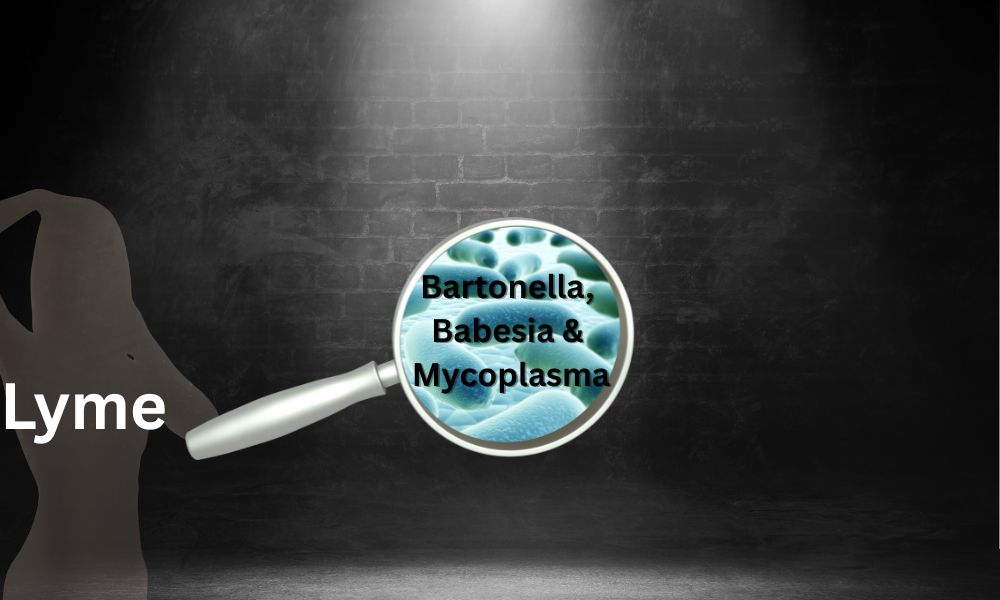If you’ve spent any time in the Lyme Disease debate (and let’s be honest, who hasn’t?), you’ve probably seen the heated arguments over whether Chronic Lyme Disease is real. The problem? This entire debate is mostly about semantics, and while doctors and researchers argue over what to call it, patients are left without proper recognition or treatment.
So, let’s clear things up. What is Lyme Disease? What isn’t it? And why is “Chronic Lyme” the wrong term for what’s actually happening?
What IS Lyme Disease?
Traditionally, Lyme Disease has been defined as an acute infection caused by Borrelia burgdorferi, Borrelia afzelii, Borrelia garinii, Borrelia mayonii, Borrelia bissettiae, and Borrelia spielmanii, all of which are transmitted by ticks. The classic presentation includes:
✔ A tick bite
✔ A bull’s-eye rash (erythema migrans, or EM)
✔ Fever, joint pain, and fatigue
If you check all those boxes, congratulations—you have what mainstream medicine calls Lyme Disease.
The problem? Not everyone with a Borrelia infection fits this description. In fact, most don’t.
The Problem with “Chronic Lyme Disease”
Many people with vector-borne infections (VBIs) never had a bull’s-eye rash, never saw the tick, and may not even test positive on standard Lyme tests (which, let’s be real, aren’t the best). Yet, they develop long-term symptoms, ranging from neurological issues and immune dysfunction to debilitating fatigue and pain.
Mainstream medicine struggles with this because it doesn’t fit neatly into the acute Lyme Disease definition. Instead of asking why some people stay sick, the debate turns into "Does Chronic Lyme Disease exist?"
But this is the wrong question.
Let’s Use the Strep Throat Model Instead
To understand why the term “Chronic Lyme” is misleading, let’s compare Borrelia infections to Strep Throat (caused by Group A Streptococcus).
Strep bacteria don’t just cause strep throat. They can also cause:
✔ Necrotizing fasciitis (flesh-eating disease)
✔ Scarlet fever
✔ Rheumatic fever
✔ Streptococcal toxic shock syndrome
But here’s the key: No one calls these conditions "Chronic Strep Throat." They are distinct illnesses caused by the same bacteria, but they manifest differently in different people.
Likewise, Borrelia infections can lead to different conditions beyond the classic “Lyme Disease” description. So why are we calling everything Chronic Lyme Disease?
A more accurate name for persistent Borrelia infections would be Chronic Borreliosis—just as we recognize chronic tuberculosis, chronic Epstein-Barr, and other lingering infections.
But even that doesn’t go far enough.
The "Co-Infection" Myth: It’s Time to Rethink the Hierarchy
One of the biggest issues in how we talk about VBIs is the idea of co-infections. It has never made sense to me that Lyme Disease gets top billing while all other VBIs are treated like supporting cast members.
In my experience? These so-called “co-stars” are often the main drivers of disease.
✔ I have seen Bartonella be the dominant player in neurological symptoms.
✔ I have seen Babesia create crushing fatigue and air hunger.
✔ I have seen Rickettsia, Mycoplasma, and other VBIs cause long-term immune dysregulation.
And most of the time, when people are really sick, they don’t just have one VBI—they have multiple. Each infection contributes to the downstream symptoms, making them all stars of the show in their own right.
The problem with putting Lyme in the spotlight? Once someone tests negative for Lyme Disease, the search for VBIs often ends right there. That means people who could get a diagnosis—and start treatment early—are instead left undiagnosed, sometimes for years.
Bottom line? We need to shift the “Lyme” light to uncover the true complexity of chronic VBIs.
Why the Right Terminology Matters: IACIRS
Patients ask me all the time, when going over results:
👉 “Does this mean I have Lyme Disease?”
It’s a loaded question, often filled with fear, thanks to everything they’ve read online about Chronic Lyme Disease. And unless they have the acute, classic picture, the answer is no.
Generally, what they have is something more complex—and better described as IACIRS (Infection-Associated Chronic Inflammatory Response Syndrome).
Why IACIRS is a Better Term
🔹 IACIRS acknowledges that multiple infections—not just Lyme—are often involved.
🔹 It focuses on the root cause: a dysfunctional inflammatory response triggered by VBIs.
🔹 It moves away from a single-infection mindset and toward a model that makes sense.
Instead of labeling people with a controversial diagnosis (Chronic Lyme Disease), we should be recognizing the immune dysregulation at the heart of these chronic symptoms.
How to Talk About This with Doctors
Many conventionally trained physicians only recognize acute Lyme Disease, so talking about “Chronic Lyme” can immediately put them on the defensive. Instead, try this approach:
🔹 State the facts, not the labels:
👉 “I have tested positive for (list infections) via (name of test and date).”
🔹 Avoid using "Lyme Disease" unless you had the classic symptoms:
This keeps the conversation focused on your specific test results and symptoms rather than a debate about terminology.
🔹 Use the term IACIRS when possible:
This shifts the conversation from an infection-based diagnosis to an immune dysregulation model, which is often more widely accepted.
Final Thoughts: Let’s Focus on the Problem, Not the Name
At the end of the day, the name doesn’t matter—the root cause does.
Arguing about whether Chronic Lyme Disease exists doesn’t help anyone. What helps is acknowledging that:
✅ Most people dealing with VBIs have multiple infections, not just Lyme.
✅ The focus needs to be on immune dysfunction (IACIRS), not just infection.
✅ A Lyme-negative test should not stop the search for the root cause.
So, can we stop debating what to call it and focus on getting patients the help they need? Because the issue is so much bigger than a name.

